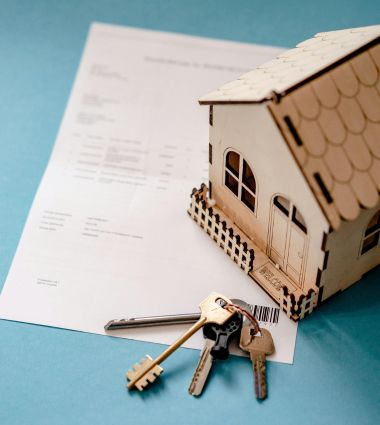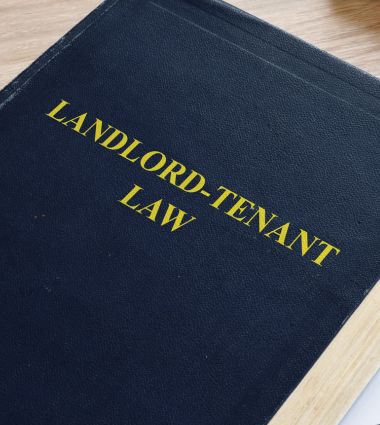Mortgage Refinancing Risks and The Need for a Real Estate Lawyer
Refinancing a mortgage often seems like a simple idea for Ontario homeowners looking to lower their interest rates or access extra cash. The idea of saving thousands of dollars or consolidating debt is undoubtedly appealing — but beneath the surface, refinancing can come with its own set of challenges. Without the right guidance, what starts as a plan to save money could turn into an expensive mistake, complete with hidden fees, complicated legal issues, and even risks to your property.
In this blog, we’ll take a closer look at the hidden risks of mortgage refinancing — ones that aren’t always obvious at first glance. We’ll also break down how a real estate lawyer can be your biggest support during this process, offering expertise and legal protection that could save you precious time, money, and stress. From making sense of complicated contracts to identifying potential red flags, a lawyer’s role is no doubt important in making your refinancing journey as smooth as it can be.
By the time you finish reading, you’ll have a clear picture of the potential pitfalls to watch for, why legal expertise matters, and how to make confident, informed decisions. Whether you’re a first-time homeowner considering refinancing or someone with years of experience in the real estate market, this guide will provide practical insights to protect your investment and peace of mind.
What is Mortgage Refinancing?
Mortgage refinancing is when you replace your current mortgage with a new one, often with better terms. Imagine upgrading from an old flip phone to the latest smartphone — it’s a way to get more value out of what you already have. While it sounds simple, it’s more than just signing a few papers and enjoying lower payments. There are pros, cons, and hidden risks you should know about.
Why People Refinance
Many homeowners refinance to save money. Let’s say your current mortgage has a high interest rate; by refinancing, you could snag a lower rate and shrink your monthly payments. Others refinance to access some of their home’s value — maybe to fund a renovation, pay off debt, or cover big expenses like tuition. It’s also common to switch from a variable-rate mortgage, where payments fluctuate, to a fixed-rate one for stability.
For example, imagine you’ve been on a variable rate that changes with the market. It might feel like riding a rollercoaster — fun when the rate drops, stressful when it spikes. By refinancing to a fixed rate, you lock in predictable payments, more like a peaceful train ride.
The Catch
Refinancing sounds great, but it can come with surprises. Some lenders charge prepayment penalties if you pay off your old mortgage early, while others tack on processing fees, legal costs, and even appraisal expenses. These can add up quickly, making refinancing less of a money-saver than you’d hoped.
Another risk is taking on more debt than your home is worth, called negative equity. This happens if the housing market dips after refinancing, leaving you owing more than your property’s value. It’s like borrowing more than your car is worth — except with a house, the stakes are much higher.

The Hidden Risks of Mortgage Refinancing
Thinking about refinancing your mortgage, Ontario homeowners? It might seem like a no-brainer — lower payments, better rates, maybe even extra cash for that dream kitchen renovation. But before you get started, let’s break down some risks that aren’t so obvious, and how they could cost you big time if you’re not careful.
Hidden Costs That Add Up
Let’s talk about prepayment penalties. Imagine this: you pay off your old mortgage early, thinking you’re making a smart financial move. Then, bam! Your lender hits you with a fee. For a $300,000 mortgage, these penalties could range from $3,000 to $6,000. It’s like getting fined for being responsible.
And that’s just the start. Refinancing comes with a laundry list of extra costs — appraisals can run you $300 to $500, legal fees easily go over $1,000, and don’t forget the administrative charges. Before you know it, what looked like a money-saving plan might be eating into your budget.
Paying More in the Long Run
Lower monthly payments sound great, but they don’t tell the whole story. Let’s say you extend your loan term to make payments more manageable. What happens? You could end up paying way more in interest over the life of the loan.
Here’s an example: A family in Toronto refinanced their mortgage and cut their monthly payments by $200. It seemed like a win until they did the math. Over ten years, they’d paid an extra $50,000 in interest. That’s not saving money — that’s handing it over to the bank.
Risk of Foreclosure and Credit Trouble
If your new mortgage terms include variable interest rates, you are basically betting on the market. When rates are low, you win. But if they go up? Your payments can skyrocket, throwing your budget into chaos. Worst-case scenario? Missing payments could lead to foreclosure.
And let’s not forget about your credit score. Refinancing often involves a hard credit check, and any missteps in juggling your finances could ding your score. A lower score can make borrowing in the future more expensive — or harder altogether.
How a Real Estate Lawyer Protects You
If you're thinking about refinancing your mortgage, you've probably heard someone say, "You need a real estate lawyer." But why? Are they just another expense? Not exactly. A good mortgage lawyer can protect you from all sorts of problems you might not even know exist.
Finding Trouble Before It Finds You
Think of a real estate lawyer like a detective for contracts. When you refinance, there’s a stack of paperwork full of legal jargon. Buried in there could be hidden fees, sneaky clauses, or rules that could trip you up later.
For example, some lenders include "prepayment penalties" that charge you thousands of dollars if you pay off your mortgage early. A lawyer spots these red flags and helps you avoid signing anything that could cost you big.
Making Sure Your Home Is Truly Yours
Your lawyer also checks your property title to confirm it’s clean. What does that mean? Well, they’ll make sure no one else has a claim to your house. Sometimes, old debts or legal disputes can come up, like a contractor saying they weren’t paid or an error from a previous owner. If something’s off, your lawyer will fix it before it becomes your problem.
Here’s an example: A homeowner in Toronto refinanced their mortgage, only to find out later there was an unresolved lien on the property. It delayed everything and almost cost them the deal. A real estate lawyer could’ve caught it early and saved them the hassle.
Negotiating Better Deals
Think of your lawyer as your teammate in negotiations. They know the ins and outs of mortgage contracts and can talk to lenders on your behalf. Whether it’s getting lower fees, better payment terms, or removing unnecessary clauses, they’ll work to save you money.
For instance, say a lender offers a deal with a high-interest rate because of your credit score. A sharp lawyer might help you find ways to argue for a better rate or connect you with lenders offering more reasonable terms.
Protecting What You’ve Worked So Hard For
Your home is probably your biggest investment, right? Your legal help in Ontario will make sure you're not accidentally giving away your hard-earned equity. They'll help you understand the long-term impact of your refinancing decisions.
Remember, mortgage refinancing risks are real, but with a good real estate lawyer by your side, you can handle them like a pro. It's worth the investment to protect your biggest asset.
Real-Life Scenarios
A Toronto Tale of Hidden Interest Rates
Let’s talk about John, a homeowner in Toronto who thought he’d scored a great refinancing deal. The interest rate looked good — at first. What John didn’t realize was that the rate was only fixed for a short time. After that, it would jump higher than the CN Tower. He didn’t spot the clause buried in the contract, and no one warned him. Fast forward a few years, and John’s monthly payments ballooned way beyond his budget, leaving him scrambling.
If John had hired a real estate lawyer, things could’ve gone differently. Lawyers know how to catch these “introductory rate” traps. They would’ve flagged the risk and helped John find a lender with stable terms. Instead of stressing over growing payments, John could’ve had peace of mind.
Mississauga's Misaligned Agreement Mishap
Sarah from Mississauga faced a different challenge. She signed a refinancing agreement that seemed straightforward — until it wasn’t. The terms were unclear, with conditions that didn’t add up. It was like trying to untangle a bowl of spaghetti. Before she knew it, Sarah was dealing with threats of foreclosure because she couldn’t keep up with the confusing payment structure.
Luckily, she decided to call a real estate lawyer before it was too late. The lawyer went through the agreement line by line, pinpointed the problem, and negotiated new terms with the lender. Sarah avoided losing her home and learned how valuable legal help can be in situations like this.
These stories aren’t just rare horror tales — they’re everyday examples of how things can go wrong when refinancing. Hidden fees, skyrocketing rates, and unclear terms can turn what looks like a good deal into a financial nightmare. Your legal representation isn’t just someone who reviews paperwork — they will protect your biggest investment and make sure the fine print doesn’t come back to haunt you.

Additional Tips for Safe Refinancing
Refinancing your mortgage always look like a good way to save money or lower your monthly payments, but it comes with a learning curve. Here are a few tips to help you avoid common mistakes and make smarter choices.
Shop Around and Ask Questions
Imagine buying a phone. You wouldn’t grab the first one you see without checking prices, features, and reviews, right? The same idea applies to refinancing your mortgage. Different lenders offer different deals, so take the time to compare options. Interest rates, fees, and loan terms can vary more than you’d think.
When talking to lenders, don’t hesitate to ask questions about costs like prepayment penalties, appraisal fees, or other hidden charges. For example, some lenders might charge a penalty if you pay off your mortgage early — this can be thousands of dollars depending on your loan. A good lender will explain these details clearly, so don’t settle for vague answers.
Keep a Rainy Day Fund
Owning a home is unpredictable. One day, everything’s fine; the next, you’re replacing a broken water heater or patching a leaky roof. Refinancing can bring added costs you didn’t see coming, like unexpected fees or higher monthly payments if interest rates rise.
Having some extra savings — often called an emergency fund — can save you a ton of stress. Experts recommend setting aside three to six months' worth of expenses. For homeowners, this might mean having at least a few thousand dollars ready for any surprises.
Team Up with the Professionals
You don’t have to handle refinancing alone. Mortgage brokers and real estate lawyers are like your backstage crew — they handle the tricky stuff so you don’t have to.
A mortgage broker can shop around for you, finding better rates or loan terms that match your needs. On the legal side, a real estate lawyer can go through your paperwork to make sure everything’s in order. For instance, they’ll check for hidden clauses or ensure the title to your property is clean, so there’s no risk of disputes later.
In Ontario, working with these professionals is especially helpful since real estate laws can get complicated. Their expertise could save you from costly mistakes.
FAQs About Mortgage Refinancing Risks
Is mortgage refinancing risky?
Refinancing can save you money, but it’s not always simple. Hidden fees or tricky terms might leave you paying more. Working with a real estate lawyer in Ontario can help avoid these risks.
Why do I need a lawyer for refinancing?
A real estate lawyer reviews your refinancing agreement to spot hidden fees and tricky terms, like balloon payments. They protect your home and ensure you fully understand the deal, so you’re not caught off guard later.
What’s the Deal with Prepayment Penalties?
Prepayment penalties are fees you might pay if you refinance or pay off your mortgage early. A lawyer can explain these penalties and help negotiate better terms, saving you money and stress.
Real Estate
Family Law
Wills & Estates
Immigration
Join Our Mailing List.
Sign up with your email to receive our newsletter and stay informed about the latest legal developments and special offers.






















































































